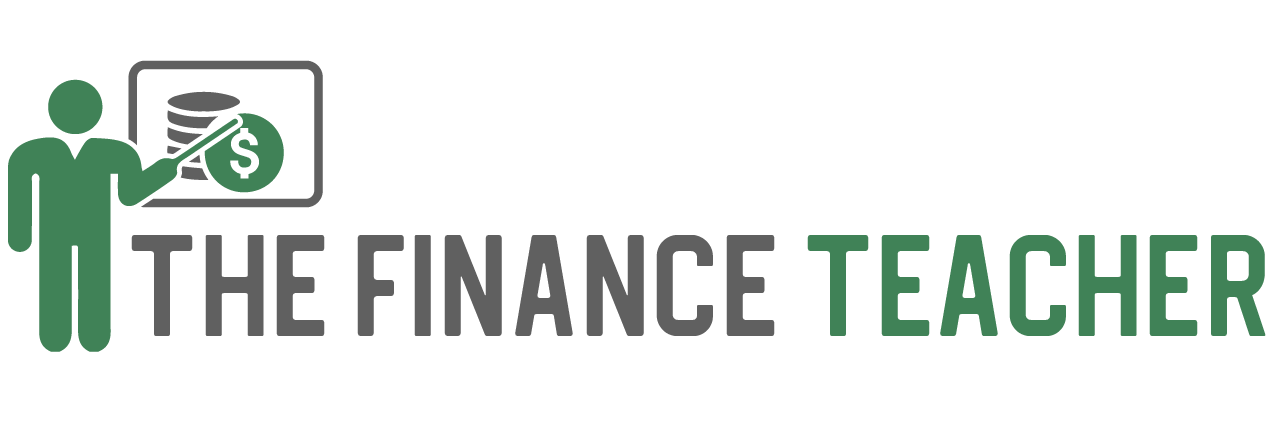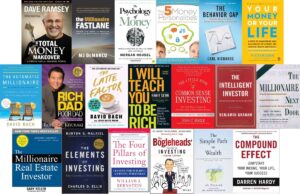Learning About Financial Freedon Should Start Early
When I was a teenager, financial freedom was a term I’d barely heard of. I was taught to save my pennies, maybe open a savings account, but investing? That was something for adults. Fast-forward to today, and if you’re a teenager reading this, let me tell you: you’re in a fantastic position to set yourself up for a financially stress-free future. And one of the best ways to get there is through long-term investing, particularly in index funds. So, let’s break it down into simple steps, showing how with patience, consistency, and the right educational mindset, you can reach financial freedom.
Table of Contents
ToggleWhy Investing Early Matters
The biggest advantage you have as a teenager is time. When it comes to investing, time allows your money to grow significantly due to a phenomenon known as compound interest. Think of it like a snowball rolling down a hill. As it gathers speed and size, it grows at an accelerating rate. The same goes for your investments. The earlier you start, the more time you give your money to grow and compound.
Take this example: Imagine you invest $1,000 at age 15 in an index fund that averages an 8% annual return. If you add $100 each month until you’re 55, that initial $1,000 investment combined with your monthly contributions could grow to well over $400,000. You can do this because index funds—those that track the performance of a broad group of stocks, like the ASX 200 in Australia or the S&P 500 in the US—historically tend to yield solid returns over time.
The Power of Index Funds
Now, you might be wondering, “What’s an index fund, and why not pick individual stocks?” Great question.
An index fund is a type of mutual fund or exchange-traded fund (ETF) designed to mimic the performance of a specific market index. For instance, an ASX 200 index fund will invest in the top 200 companies on the Australian Stock Exchange. Instead of picking and choosing individual stocks, which can be risky and time-consuming, you’re essentially investing in a small piece of a broad range of companies.
Here’s why index funds are ideal for teenagers:
- Diversification: With one investment, you’re spreading your money across many different companies. This reduces risk because even if one company underperforms, others in the fund might do well.
- Low Fees: Index funds are generally “passively managed,” meaning they don’t require as many resources or decision-making from fund managers. This keeps fees low, which is great because high fees can eat into your returns.
- Historically Steady Growth: While no investment is guaranteed, index funds, particularly in well-established markets, have historically provided consistent, steady growth over decades.
Setting up a Long-Term Investment Mindset
Investing isn’t a get-rich-quick scheme. In fact, if you’re looking for excitement or rapid returns, long-term investing might seem a bit boring. But that’s the beauty of it! Once you make your initial investment and set up automatic monthly contributions, you can focus on other areas of your life, letting your money grow in the background.
Here are a few practical tips for sticking to a long-term investment strategy:
- Set Realistic Goals: Start small with whatever amount you’re comfortable with, and set a long-term goal. It could be for retirement, buying a house, or even achieving financial independence.
- Stay Consistent: Investing is like a marathon, not a sprint. By investing a set amount regularly, whether it’s $50 or $100 a month, you can build up a solid portfolio without feeling overwhelmed.
- Ignore the Noise: The stock market goes up and down, but these fluctuations are normal. When you’re investing for the long-term, it’s best to stay calm and keep your focus on your end goal. Avoid checking your investment daily and don’t panic when you see dips.
The Role of Education in Financial Freedom
In today’s world, financial literacy is just as important as traditional education. Knowing how to make, save, and invest money is the foundation of a stable future. Unfortunately, personal finance isn’t always taught in schools, so you might need to take the reins on your own financial education.
Self-education is your best friend here. Thanks to the internet, there’s an incredible range of resources—many of which are free—that can help you understand investing, budgeting, and financial management. Here are some recommended resources to get you started:
- Books: Internationally renowned titles like “I Will Teach You to Be Rich” by Ramit Sethi provide practical, step-by-step guides on budgeting, investing, and developing a healthy mindset toward money. Another excellent choice is “The Psychology of Money” by Morgan Housel, which explores the emotional and psychological factors that influence financial decisions and offers insights into long-term wealth-building strategies. These books are easy to read, highly relatable, and full of advice you can put into action right away.
- Podcasts and YouTube Channels: Many successful investors share insights and lessons online. For instance, “The Stacking Benjamins Show” covers a wide range of personal finance topics with a light, conversational approach, making it accessible for beginners. Additionally, channels like “Graham Stephan” on YouTube offer personal finance basics, investing tips, and real-life money lessons in an engaging, digestible way.
- Online Courses: Platforms like Coursera, Udemy and Khan Academy offer affordable or even free courses on personal finance. Topics such as compound interest, understanding stock markets, and managing personal budgets can give you a solid foundation. For investing specifically, “Investing 101” courses can clarify the mechanics of stocks, bonds, and funds in a structured format.
By consistently seeking out this type of knowledge, you’ll empower yourself to make smarter financial decisions. Building financial literacy prevents costly mistakes and sets you up for greater security in adulthood. Some of these resources cost a little money, but consider it an investment in yourself—the knowledge you gain can be worth far more in the long run.
While self-education is important, don’t forget about formal education and skills development, either. Your ability to earn more in the future will depend partly on your skills, whether they’re acquired through university, vocational training, or entrepreneurship. Combining formal education with financial literacy gives you the tools to both make money and manage it wisely, bringing you closer to a life of financial freedom and security.
Balancing Education and Earning Potential
Education is also critical because it gives you more options for earning potential. Developing skills through formal education, vocational training, or entrepreneurship expands your opportunities to earn a stable income—money that you can then invest. Financial independence and freedom are closely linked to your earning potential, so aim to acquire skills that are both in demand and well-paying.
As a teenager, you might not have a job yet or may only have part-time work. That’s perfectly fine! Every dollar counts, so even starting small can make a difference.
Once you enter the workforce, prioritise “paying yourself first.” Set up an automatic transfer of a portion of your earnings into your investment account each month. By doing this consistently, you’re setting up a habit that will keep growing with you as your income increases over time.
Think of Financial Freedom as a Journey
Financial freedom isn’t something that happens overnight. It’s a journey that requires a mix of patience, discipline, and knowledge. By investing early and making financial education a lifelong habit, you’re laying a foundation for a future that’s free of financial stress.
And remember, financial freedom doesn’t mean you’ll never work. For most, it means you’ll have the freedom to choose how and when you work, rather than feeling chained to a job just for the paycheque. Imagine having the option to work on projects you love or take time off without stressing about bills—this is the true essence of financial freedom.

Final Thoughts
As a teenager, you have a unique advantage in the journey to financial freedom: time. Start small, stay consistent, and make a habit of learning about personal finance and investing. Every dollar you save and invest now is a step towards a life free of financial stress.
You might not feel the benefits immediately, but your future self will thank you. Remember, the goal isn’t just to build wealth; it’s to build a life of freedom, choice, and peace of mind.





